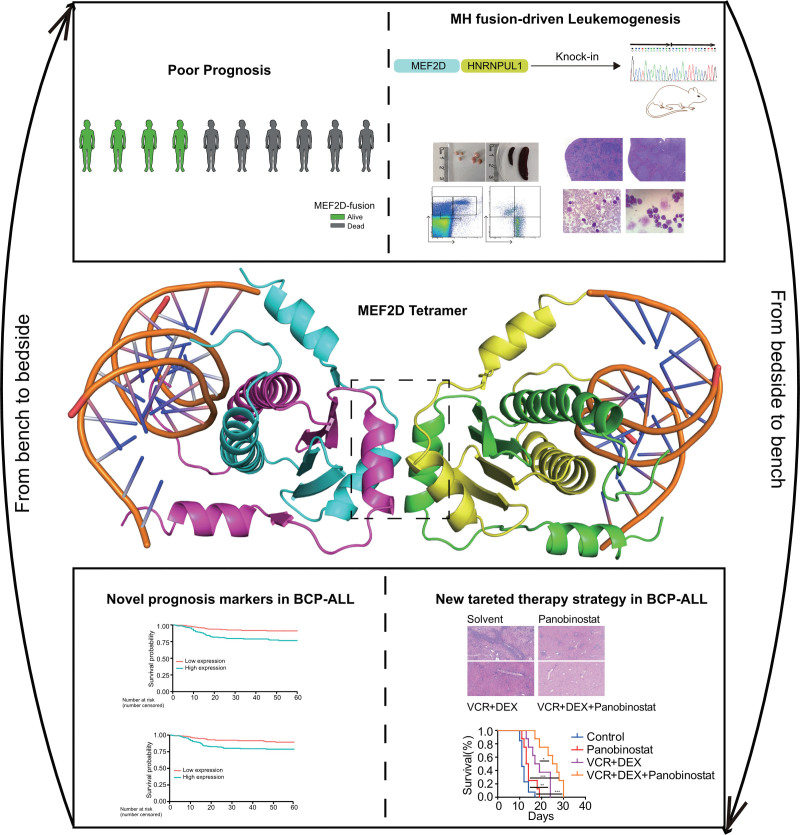A typical bedside-to-bench investigation of leukemogenic driver MEF2D fusion reveals new targeted therapy in B-cell acute lymphoblastic leukemia.
IF 1.5
Q3 HEMATOLOGY
引用次数: 1
Abstract
B-cell acute lymphoblastic leukemia (B-ALL) is a malignant tumor originating from B-lineage lymphoid precursor cells. The incidence of B-ALL is about 80% in childhood acute leukemia and 20% in adults. In recent years, with standardized treatment guided by risk stratification, the long-term disease-free survival rate of children is about 80%, while that of adults is less than 40%. However, the specific pathogenesis of the newly identified B-ALL and the targeted therapy strategies have not been vigorously investigated. In this review, we highlight the recent breakthroughs in mechanistic studies and novel therapeutic options in DUX4- and MEF2D-subtype B-ALLs.

一项典型的白血病驱动因子MEF2D融合的临床研究揭示了b细胞急性淋巴细胞白血病的新靶向治疗方法。
b细胞急性淋巴母细胞白血病(B-ALL)是一种起源于b系淋巴前体细胞的恶性肿瘤。B-ALL在儿童急性白血病中的发病率约为80%,在成人中约为20%。近年来,在以风险分层为指导的规范化治疗下,儿童长期无病生存率约为80%,成人长期无病生存率不足40%。然而,新发现的B-ALL的具体发病机制和靶向治疗策略尚未得到充分研究。在这篇综述中,我们重点介绍了DUX4-和mef2d亚型b - all在机制研究和新的治疗方案方面的最新突破。
本文章由计算机程序翻译,如有差异,请以英文原文为准。
求助全文
约1分钟内获得全文
求助全文

 求助内容:
求助内容: 应助结果提醒方式:
应助结果提醒方式:


